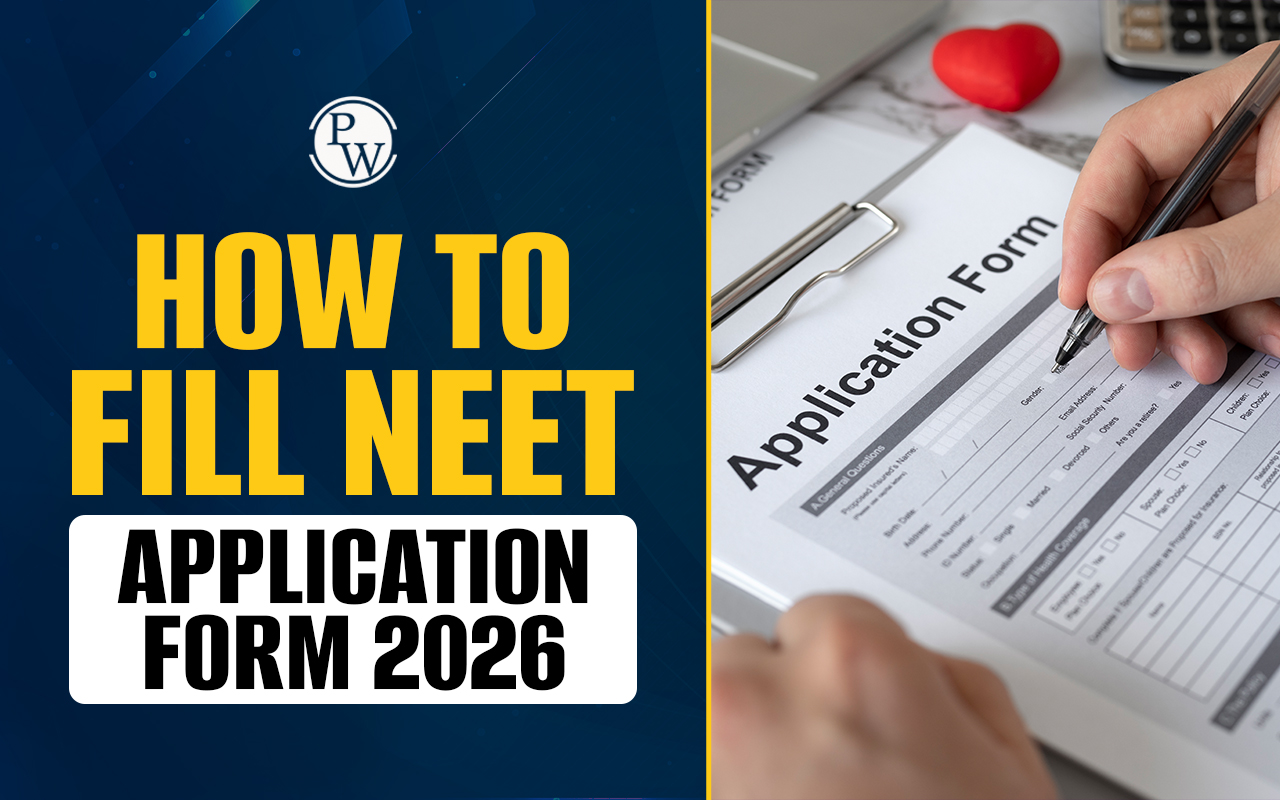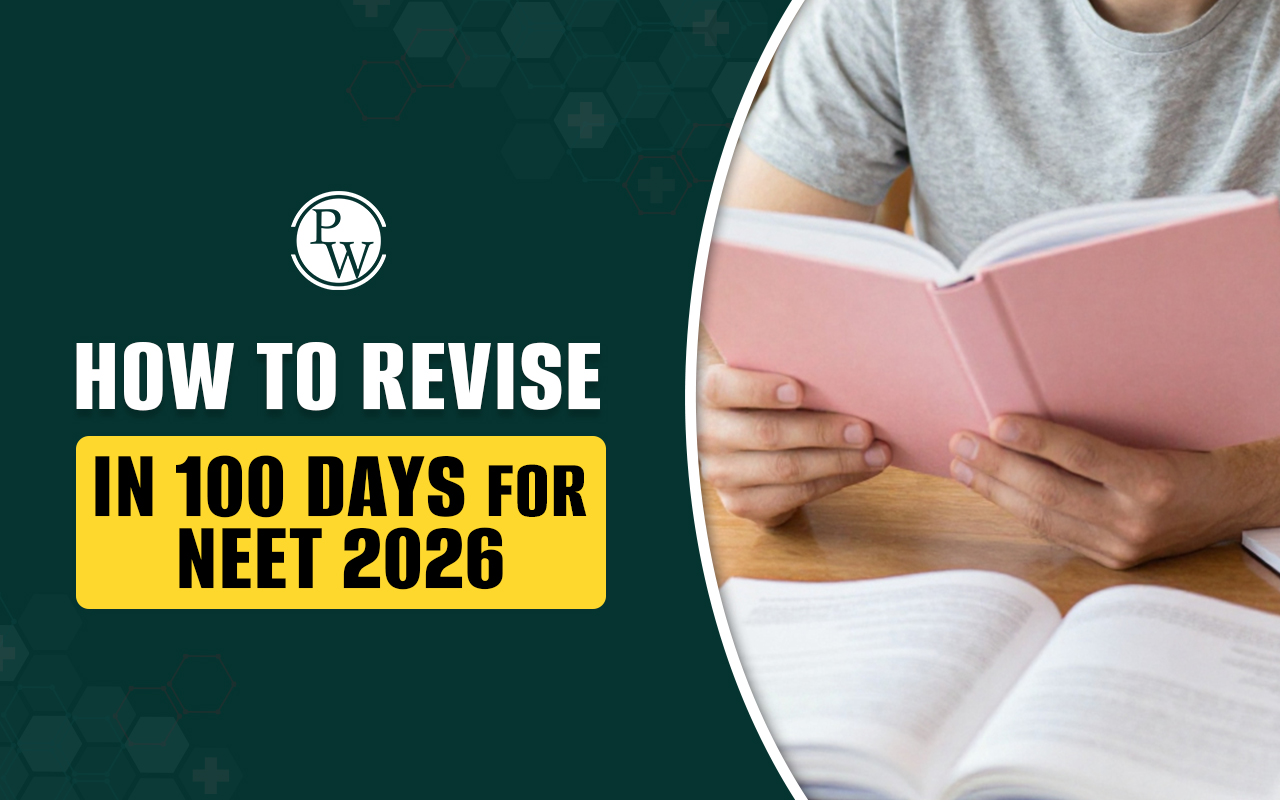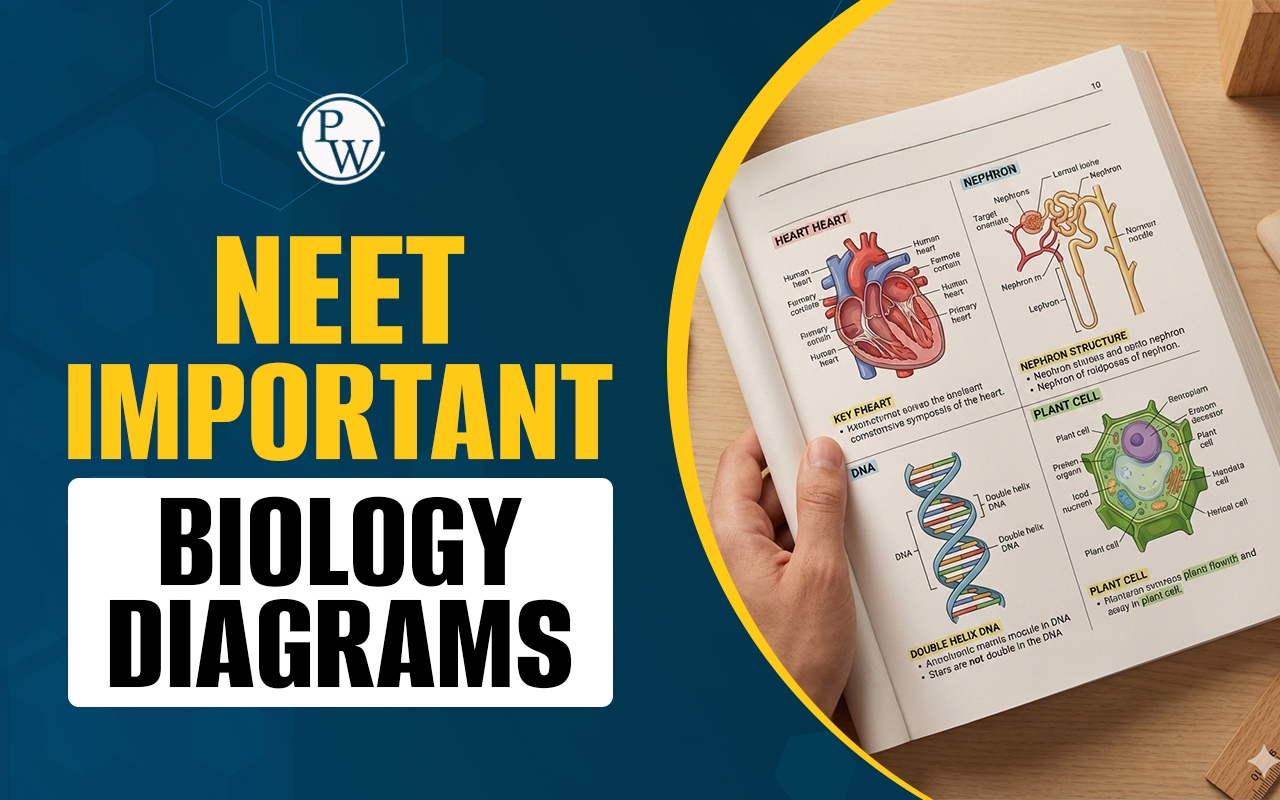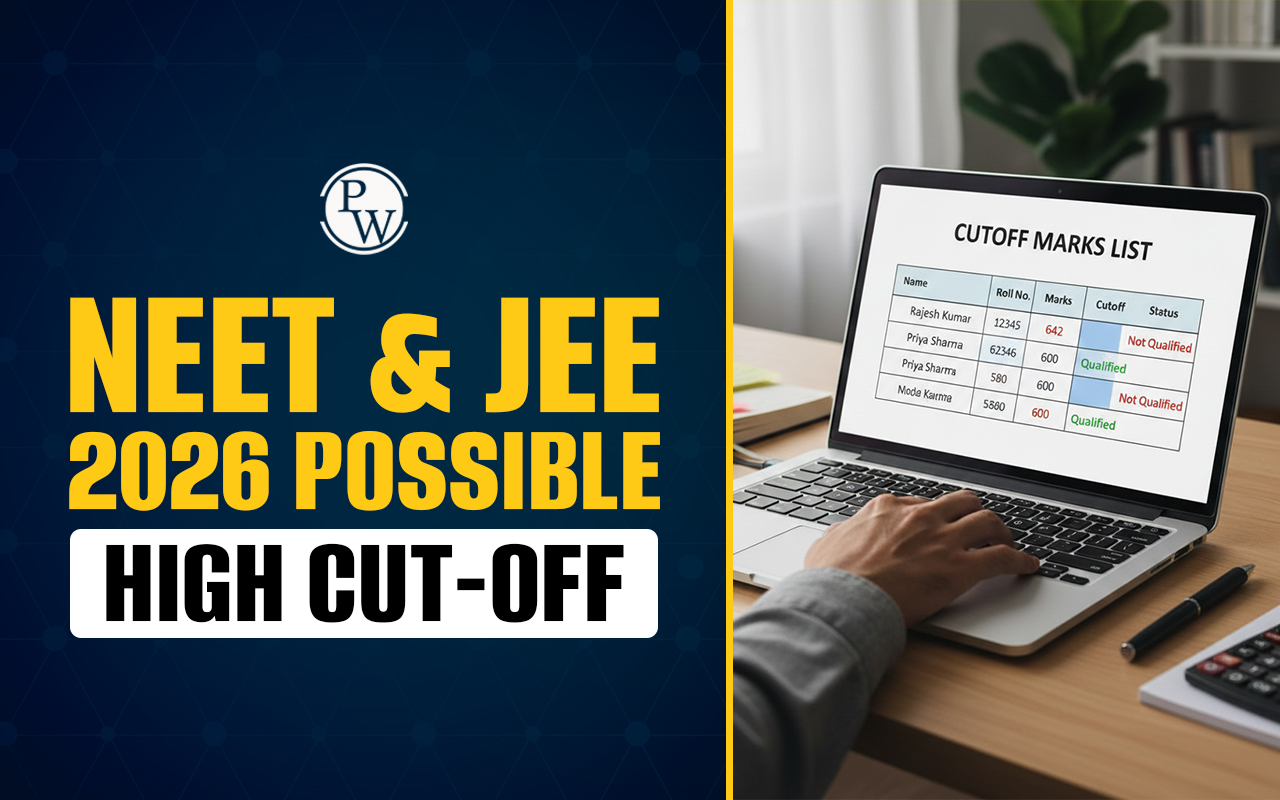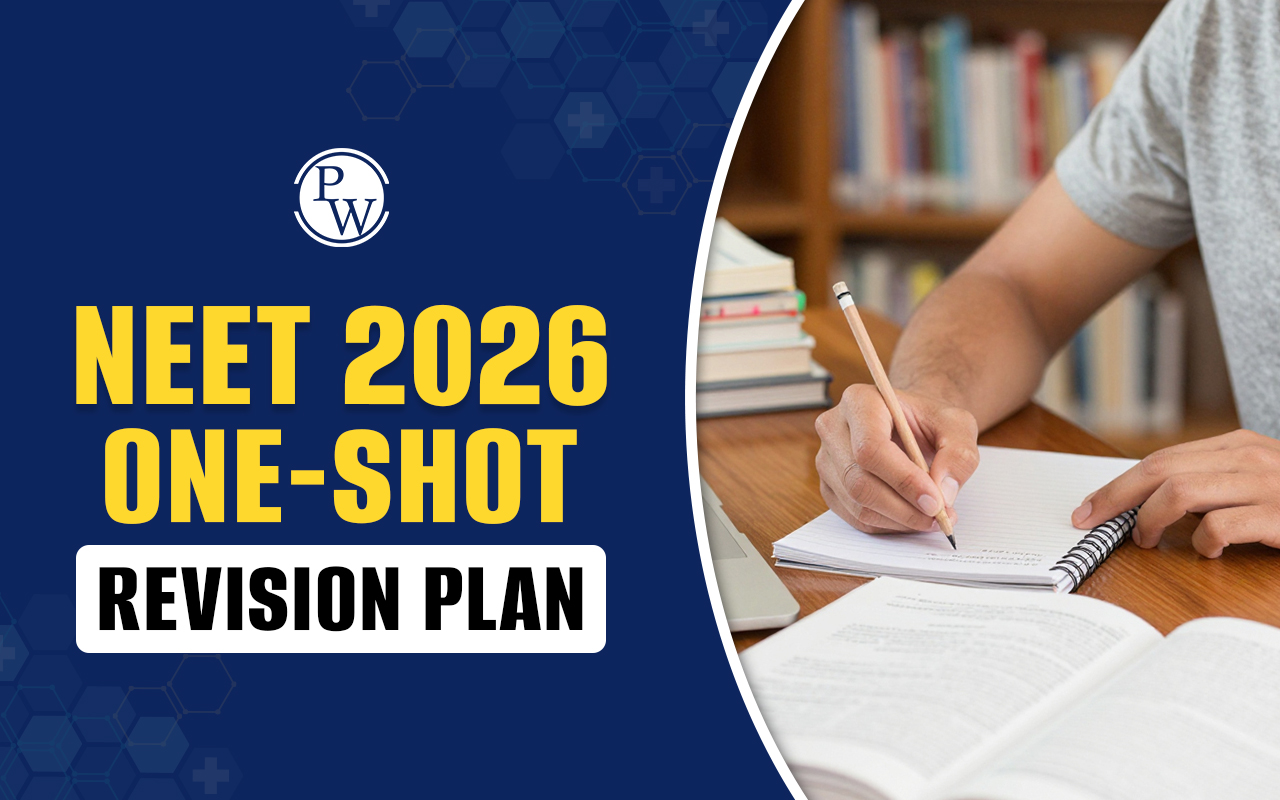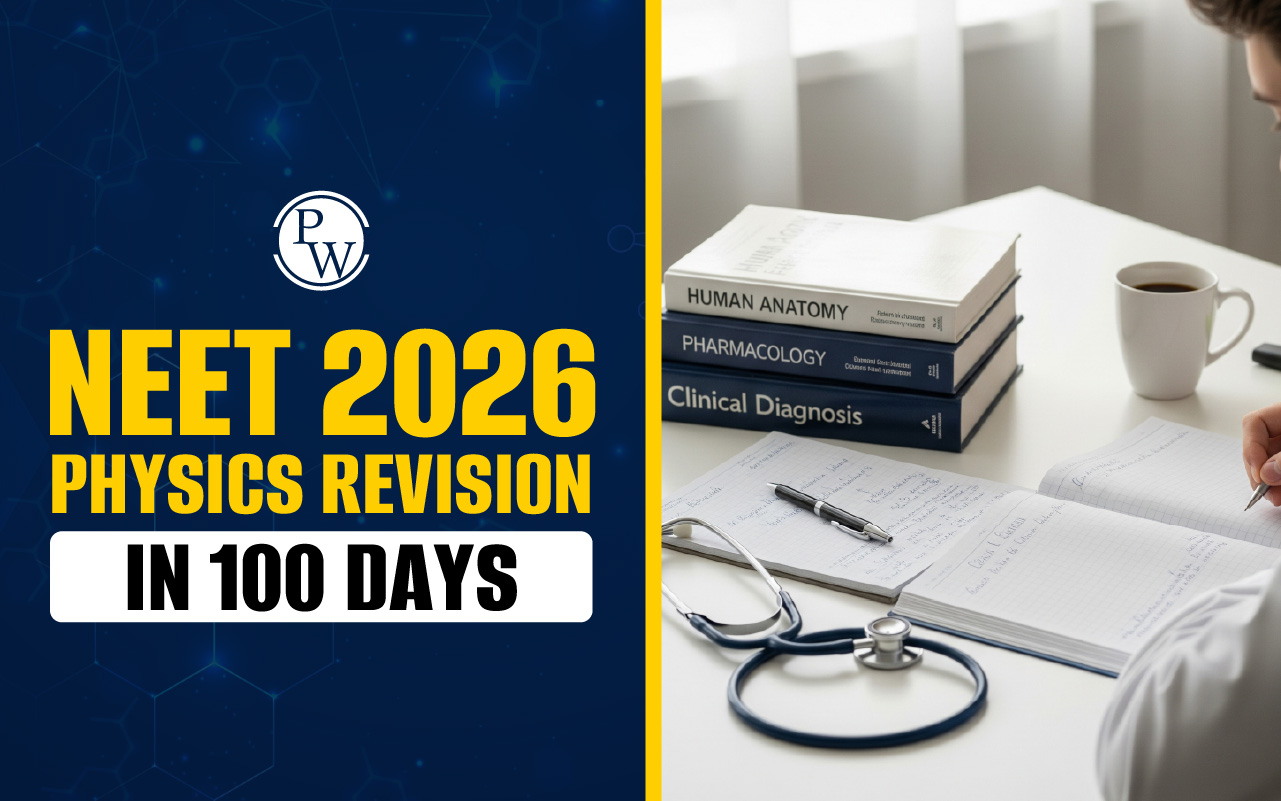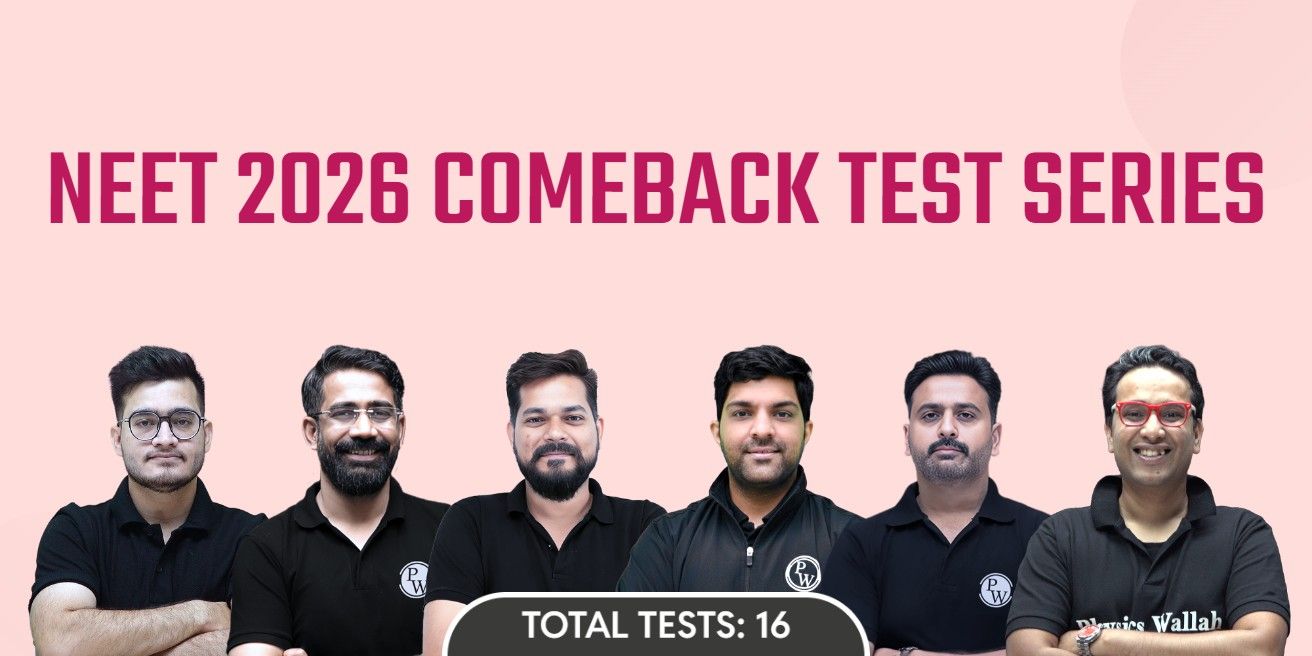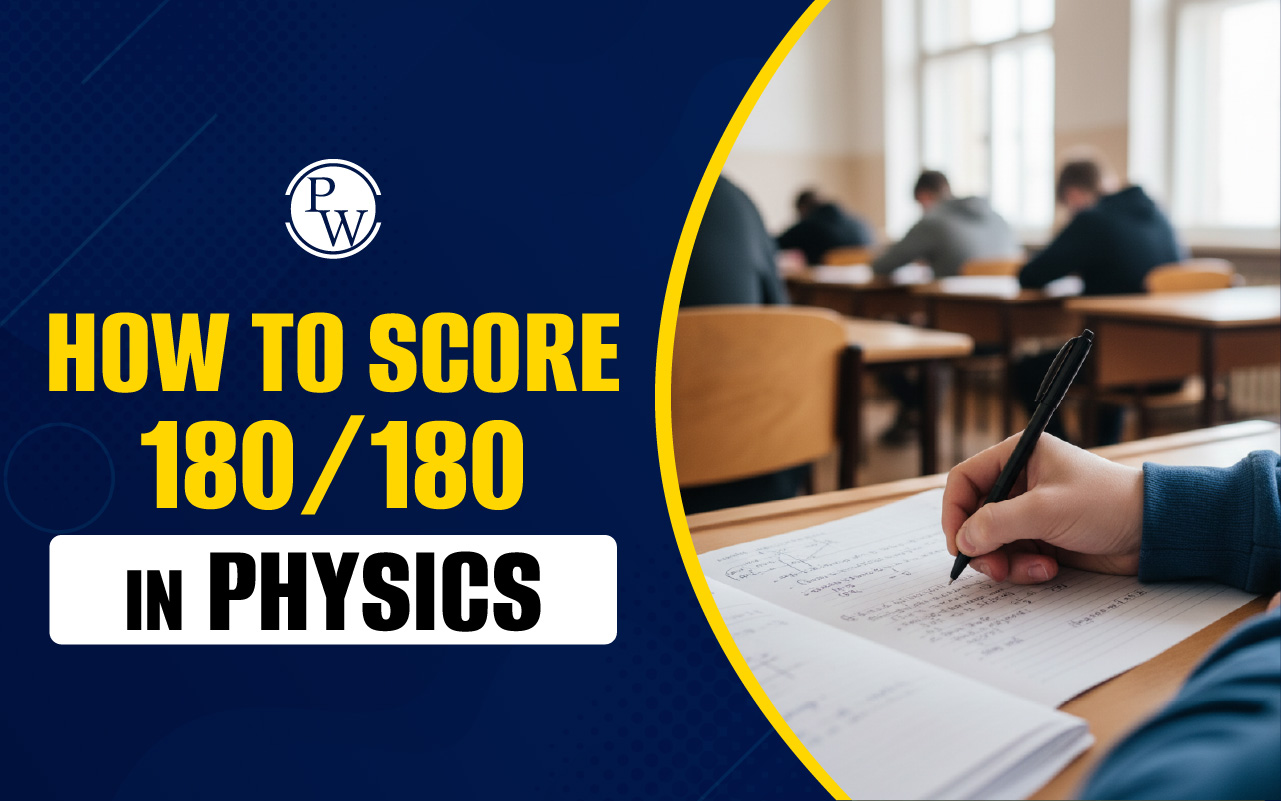
How to Study Physics for NEET 2026: Physics is one of the most scoring subjects in the NEET 2026 examination. Students find this subject very tough as it has theory as well as numerical questions. However, with a proper plan and a clear understanding, Physics can be your scoring subject.
Physics should not be thought as a subject with just many formulas. Physics becomes interesting if you learn it with curiosity. Physics requires you to understand the Physics concepts for NEET and apply them to solve questions. Therefore, it is required to use smart methods to study in NEET.
How to Study Physics for NEET 2026?
NEET Physics will have questions from both Class 11 and Class 12. Students will have to attempt 45 questions from Physics, and each question will have a 4-mark value. Therefore, Physics has a total of 180 marks out of 720, that is, 25% of the paper. Students can significantly improve their NEET ranks by scoring well in Physics.
The first step to prepare well is to understand the NEET syllabus. Class 11 topics are more conceptual and helps you lay down the foundation. Class 12 topics require more application and formulae. Students should focus on both topics equally. Some students don’t give much importance to Class 11, which is a grave mistake. Numerous tricky questions come from Class 11.
Strategy to Study Physics for NEET 2026
A strong strategy is the key to success in Physics. You should not just blindly read books or try to memorize everything. Here is a detailed way to plan your preparation:
Understand NEET Physics Syllabus
The very first step for studying Physics for NEET is to completely understand the syllabus. NEET Physics syllabus is based on the concepts from Class 11 and Class 12 NCERT textbooks. It is important to know the entire syllabus in order to plan your time for preparation and to ensure you are not skipping any important topics. The syllabus for Physics includes a variety of topics from mechanics, thermodynamics, optics, and modern physics to electrodynamics and more. By carefully going through the syllabus you can also get an idea of the important topics that may require more attention and practice. Knowing your syllabus will also help to keep your preparation structured and organized.
Choose Books for NEET Physics
Selecting the right books to study for NEET Physics is important as it lays the foundation for your preparation. The primary books to study for NEET Physics are the NCERT textbooks of Class 11 and Class 12 as most questions are derived from these books. Thoroughly reading the NCERT textbooks will help you build a strong base and clear all the fundamental concepts. You can also refer to PW books such as Yakeen, Lakshya combo books. These books offer a good variety of questions and detailed concept explanations which will help in boosting your practice and enhance your concepts. However, it is advised not to refer to multiple books at a time to avoid confusion. Stick to a few reliable books and make sure you study them thoroughly.
Make Study Plan for NEET Physics
A study plan is important in order to help you plan your time and cover the entire syllabus before the exam. You should make a plan to divide your preparation into smaller parts, allotting different topics for different days.
For example, you could plan to take 1 or 2 days for each topic, first by understanding the theory and then by practicing the related problems. Remember to also keep some days for revision and practice of previous years’ question papers. A study plan will help you avoid last-minute stress and will also help you to remain consistent in your preparation. It will ensure that you do not leave any topic for the end and have enough time to improve upon your weaker topics.
Prioritize NEET Physics High Weightage Topics
Some topics are weighted more than others in the NEET Physics syllabus, meaning they have more marks and are also asked more frequently in the exam. It is a good idea to identify these high-weightage topics and give them extra attention.
For example, Current Electricity, Optics, Modern Physics, and Laws of Motion are some of the high-weightage topics in NEET Physics. Try to spend more time on these topics and ensure that you have a strong understanding of them. However, don’t ignore the other topics because every topic can have some questions. You should study in such a way that you are confident in all the topics, but you should also give more time to important topics.
Analyze Previous Years' Question Papers
One of the best things you can do to prepare for the exam is to practice previous years’ NEET question papers. It helps you get a feel of the type of questions that are asked, their level of difficulty, and the NEET exam pattern. Solving these questions within the given time will help you to improve your speed and accuracy. You will also be able to identify the topics that are frequently asked in the exam and you can then focus on them. Practicing previous year question papers also helps reduce exam stress and boosts confidence because you know what to expect on the exam day.
Make Short Notes for NEET Physics
One of the best ways to revise your study material is to make short NEET physics notes. It is a good idea to make notes of important formulas, key concepts, and tricks to solve questions quickly while studying. You should write the notes in your own words, which will help you remember them better. Short notes come in handy when the exam is just around the corner because you can quickly revise important points instead of going through big books. Keep your notes neat and well-organized because it will save you a lot of time and help you easily recall the formulas during the exam.
Solve NEET Physics MCQs
Physics is a subject that requires a lot of practice, and it is important to solve questions daily after studying the theory. Begin with easy questions and then gradually move on to more difficult ones. Make sure to practice all types of questions like numerical problems, assertion-reason questions, and questions based on graphs and diagrams. If you are unable to solve a question, don’t get demotivated; instead, go back to the theory or ask your teacher or friends for help. The more questions you solve, the more confident you will become. Practice not only helps in improving your problem-solving skills but also helps in reducing fear on the exam day.
Study Plan for NEET Physics
Having a study plan keeps you organized and helps you manage your time better. A good plan covers all topics, revision, and practice.
| Daily NEET Physics Study Plan | ||
| Time Slot | Task | Notes (With Coaching / Self Study) |
| 6:00 AM – 7:00 AM | Revise old concepts | Focus on weak topics or revise coaching notes |
| 7:00 AM – 8:30 AM | Study Theory (New Concept) | Watch lecture or read book – take short notes |
| 9:00 AM – 10:30 AM | Practice Numericals (New Topics) | Solve examples + 10-15 MCQs from the studied topic |
| 2:00 PM – 3:00 PM | Attend Coaching Lecture / Video Class | Concentrate fully, write key points |
| 4:30 PM – 6:00 PM | Solve Coaching DPPs / NCERT Questions | Daily Practice Problems + NCERT back exercises |
| 8:00 PM – 9:00 PM | Revision + Formula Review | Revise notes + highlight tricky formulas |
| 9:00 PM – 10:00 PM | Solve MCQs from Past NEET Papers | Builds exam pattern understanding |
NEET Physics Preparation Tips
Here are some helpful tips to make your NEET Physics preparation 2026 strong:
-
Understand every topic very well: Do not only read, try to understand WHY and HOW things work in Physics.
-
Practice numerical questions more: Practicing a lot of numerical-type questions is required for Physics.
-
Make your concepts strong from the NCERT: The NCERT is your primary study material. Read it and revise it again and again.
-
Try to maintain a fixed schedule daily: Try to study Physics every day at a fixed time. Dedicate 1.5- 2 hours daily.
-
Start studying Class 11 topics first: Do not avoid any chapter of Class 11 as these are very important.
-
Keep on revising the weak topics: If you find any topic difficult, go through it multiple times and solve as many questions as you can.
-
Prepare short notes for revision: Prepare your own concise notes. You can use these notes for quick revision before the exams.
-
Practice previous year NEET Physics papers: This will help you in understanding the style of questions and the topics that are frequently asked.
Join PhysicsWallah's online NEET coaching and make your journey simple and clear. Learn from trusted teachers, follow easy-to-understand lessons, and study at your own pace from home.
How to Study Physics for NEET 2026 FAQs
How do I begin my preparation for NEET Physics 2026?
Which books should I use to study for NEET Physics?
3. How many hours should I study Physics every day for NEET?
How do I study Class 11 and Class 12 topics simultaneously?
Why is it necessary to solve previous years question papers?

